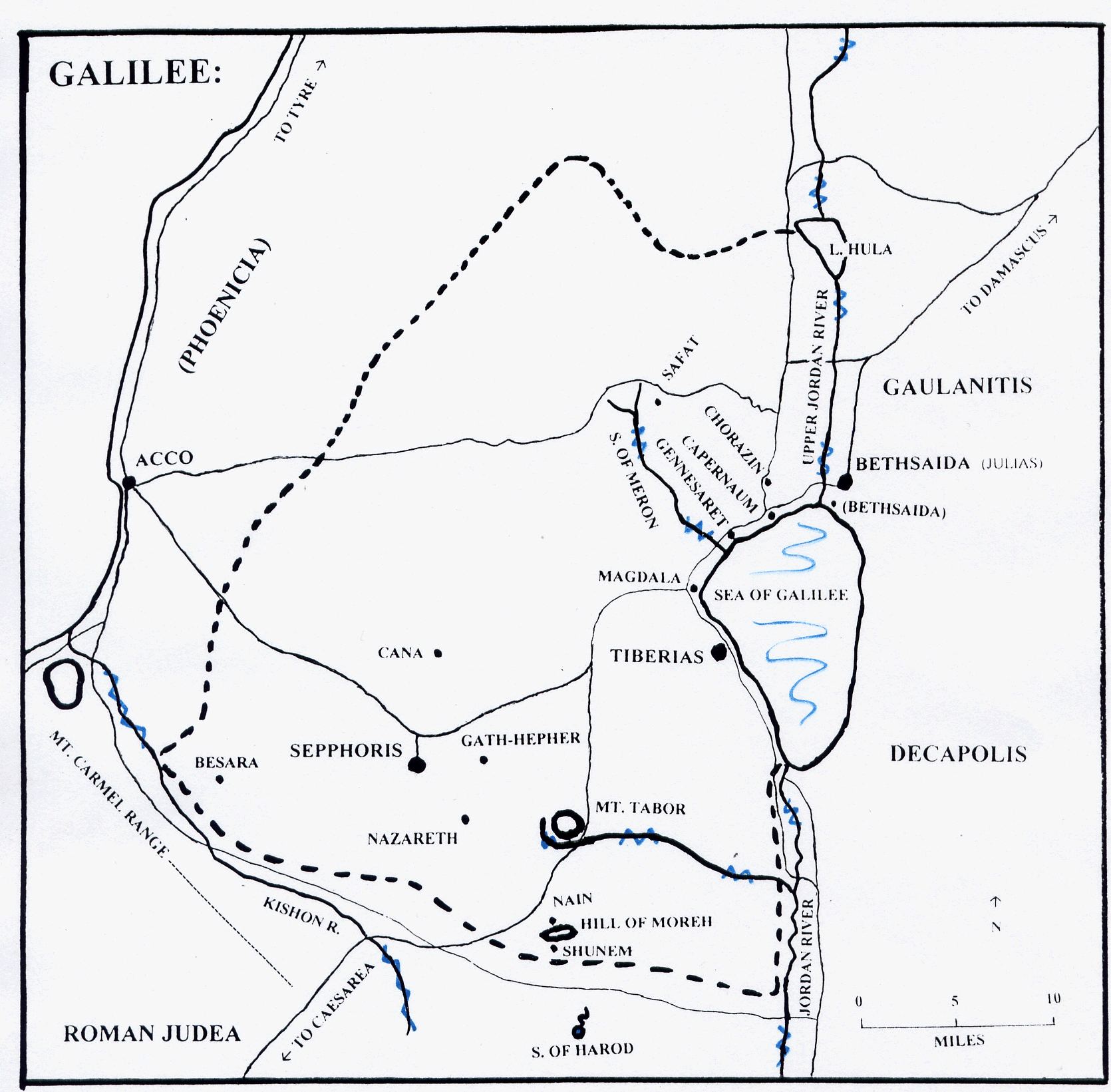16 – Wedding at Cana
In the spring of 28 AD, a wedding was scheduled in Cana, in Galilee, and Mary (the mother of Jesus) was invited. Nathanael secured an invitation for Jesus and Philip. The celebration would last seven days. New guests could arrive at any time. There would be food, wine, music, and guests in abundance. Mary, as a mature woman in her 40’s, was helping with the preparation, cooking, serving, and cleaning. In addition, she would be very involved in socializing.
On the fourth or fifth day Jesus arrived with Philip, and they joined the celebration. For a while Jesus “circulated” and at some point he greeted his mother. While they were talking, Mary mentioned that apparently the host was running low on wine [a faux paux].
‘Someone ought to do something about it,’ Mary said, looking expectantly at Jesus.
‘The situation is just like Israel, but it is not yet time for me to act,’ was Jesus’ initial response, elevating the conversation to a spiritual level.
But Mary knew that her son was a good man. Jesus was her eldest son and she believed that Jesus would find a way to help. Therefore after he had departed, Mary, still thinking on a physical level, told the household servants to expect some help from Jesus and to follow his directions.
Jesus decided to act, but chose to show God’s power, and God’s plan for salvation in such a way as to not draw too much attention to himself.
At a large gathering there would have been a lot of washing going on: feet upon entry, hands before and after every meal, etc. In the courtyard stood six borrowed natural stone jars. Each jar could hold between 20 and 30 gallons. A lot of guests had been expected and a lot of water had been necessary. It was necessary that the containers be stone so that they would fulfill the legal criterion for purity. But now, nearing the end of the feast, they were nearly empty.
Jesus instructed the servants to refill the jars. To refill them would require a source of running water and would require a determination to expend considerable effort. The servants did as they were instructed, assuming that more guests were expected. But then Jesus directed them to do something VERY strange. ‘Draw out a cupful and take it to the headwaiter’, he said, and left them. Though it made no sense to them, they did as they were told to do.
When the headwaiter tasted the cupful of water, he was very glad that there was more wine available, and yet was quite surprised at the fine quality. It was better wine than he was now serving (Apparently it was typical to serve the best wine in the first few days when the most important guests would be there. Later most would have drunk so much that folks would not notice a lower quality wine). Up until now the wine had been good [though getting steadily worse]. No one would expect that there was any better wine.
John called this a “sign”. Jesus was showing those who would look with the eyes of faith, that The Covenant was as nearly empty as the water jars. The Torah had been excellent in its time. It had gladdened the hearts of such noble guests as Moses, Joshua, David, Solomon, Elijah, and many others who came earlier to meet God. God, through Israel, had brought justice into an unjust world. But Israel was serving poor justice to it’s own people, relying only on the law, and now had a bad reputation. God would now expect Israel to let love be a balance for the law, and thus provide true justice.
Now, through Jesus, God was offering something better. The “Gospel” of God’s mercy and forgiveness, will truly let “justice flow down like water”, and would gladden the hearts of the nations. It is far better than what the Law of Moses had become.
This is the “Good News” that Jesus was bringing. This is the better wine that God will now serve to his guests. This was “proof” for Philip and Nathanael, whose faith was new. “See Nathanael, something good HAS come out of Nazareth”.
DAB
No questions have been asked yet.

